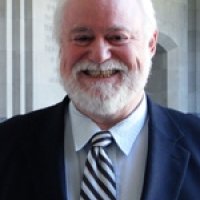Towards the 2015 General Elections in Nigeria
Panelists:
Almami Cyllah, Regional Director of Africa, International Foundation for Electoral Systems (IFES);
Attahiru Muhammadu Jega, Chairman, Independent National Electoral Commission of Nigeria;
Steve McDonald, Director, Africa Program and Project and Building State Capacity, Wilson Center.
The Nigerian Electoral Process: Reforming a Broken System
“All of you that have been observing elections in Nigeria would say that… elections are not what they ought to be,” charged Almami Cyllah, Regional Director of Africa at the International Foundation for Electoral Systems (IFES). “One person can start a movement… and [Jega] has started one. With his colleagues, he has been moving Nigeria towards where it ought to be,” he continued. Not only does Attahiru Muhammadu Jega, Chairman of the Independent National Electoral Commission of Nigeria (INEC), “promote the idea of what a free and fair elections should be in Africa,” but what the standards for elections should be around the world. In his work, Jega has helped train 250 judges for electoral dispute resolution and encouraged the Nigerian government to work with the media, political parties, lawyers and magistrates to assure that all stakeholders are included throughout the electoral process.
“As Nigeria prepared for the 2011 general elections, doubts pervaded the atmosphere on whether Nigeria would get it right,” Attahiru Muhammadu Jega remarked. He emphasized that, in light of his country’s past failures, it needed to completely reform the process and amend the constitution’s electoral act. “While [the election] was not perfect, INEC raised the bar… [we] know there are still many challenges and as we focus on 2015, INEC will draw lessons from its experiences and use these during its preparations for [those] elections.” Jega asserted that credible elections in Nigeria are an achievable goal, as long as INEC continues to work to promote the process’s legitimacy.
Defining INEC’s Successes and Current Challenges
Although this election cycle witnessed the “best elections that Nigeria has seen so far,” Jega admitted that there were still many challenges confronting INEC. The Chairman highlighted some of the most daunting, such as how the timeframe for the distribution, tabulation, and declaration of results is extremely narrow. This pressure is compounded by INEC’s attempts to amend the legal framework, while demonstrating the need for reform to both the country’s legislature and the executive branches. For example, Jega cited how there has been a decrease in the number of recorded cases of voter fraud and a reduction in results contestations brought to the courts. He credits this to INEC’s promotion of a biometric based registry of voters and the Commission’s ability to improve the overall security of polling stations by using national police to enforce the peace.
Furthermore, INEC has improved the credibility of the electoral process by employing a modified open ballot system (REMOBS), which assures the ballot’s integrity by preventing voters and political operatives from going from polling station to polling station to vote several times. This is also secured through a decentralized distribution of materials and serial numbering of ballot boxes inter alia. Finally, Jega stated that INEC has been able to ameliorate the Nigerian electoral process by pushing for the prosecution of electoral offenders. He emphasized that this was necessary to combat impunity and was the product of a joint effort with the Electoral Offenses Tribunal and the Nigerian Bar Association.
However, Jega lamented that this generation’s lack of faith and confidence in the electoral process severely undermines INEC’s efforts. Yet, he conceded this wariness was not entirely unjustified since the Government has not had a particularly stellar track record following the will of the Nigerian people. Jega said that this can only be overturned if the population’s trust in INEC is restored and those politicians who run for office with a “do or die” mindset unlearn this deleterious and myopic zeal.
Lessons Learned
Chairman Jega concluded his remarks by reemphasizing the need to reduce the time pressures on the commission during the election cycle. He maintained that the process would further benefit if it facilitated stakeholder consultations through the Interparty Advisory Committee (IPAC), especially between political parties. Moreover, Jega posited that it is necessary to boost civic and voter education, and continue to refine and improve the use of technology in voter registration and accreditation as it relates to transparency and integrity. Jega stated that the training of electoral officials and poll workers was also a matter of significant importance.
To assess the efficacy of INEC, the organization commissioned internal and external evaluations of its work. The assessments undertaken by PriceWaterhouseCoopers and the Registration and Election Review Committee (RERC) report were used by INEC to examine the strategies it has been using to legitimize Nigeria’s electoral process. The Chairman also mentioned INEC’s participation in a knowledge-sharing conference for African Electoral Management Bodies so that it could work with other organizations and learn how they address matters associated with electoral reform. “The objective is building democracy and conducting credible elections and we can do it better if we work together” Jega affirmed. “You never know what is possible unless you engage the issues properly.”
Speakers

Hosted By

Africa Program
The Africa Program works to address the most critical issues facing Africa and US-Africa relations, build mutually beneficial US-Africa relations, and enhance knowledge and understanding about Africa in the United States. The Program achieves its mission through in-depth research and analyses, public discussion, working groups, and briefings that bring together policymakers, practitioners, and subject matter experts to analyze and offer practical options for tackling key challenges in Africa and in US-Africa relations. Read more
